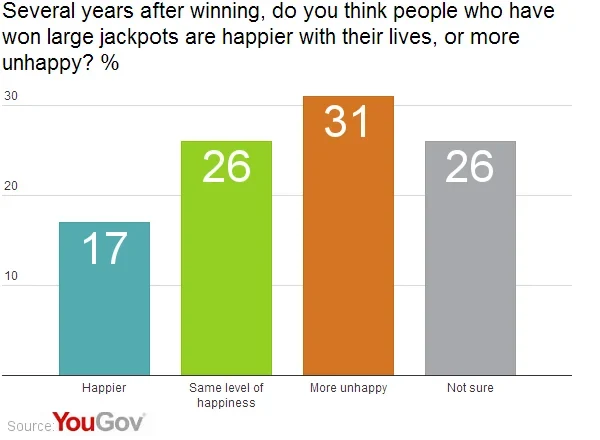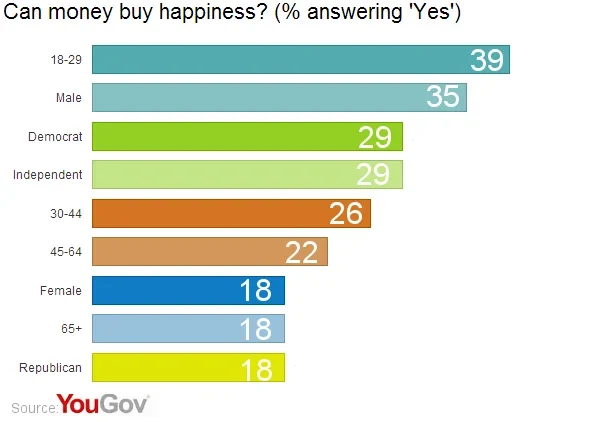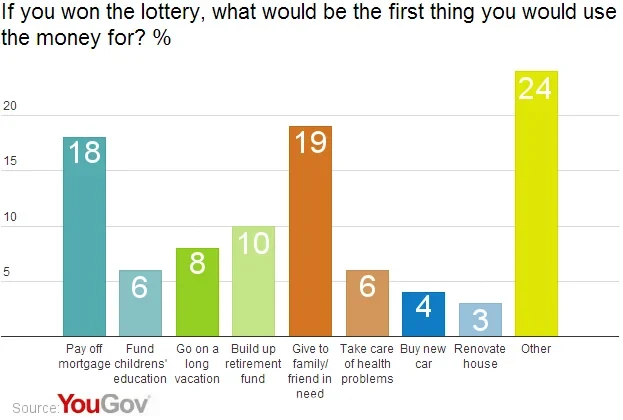Most Americans don't think that winning the lottery makes you happier in the long run, with nearly a third saying that it will actually make you less happy.
The Mega Millions jackpot hit a $344 million this weekend after more than two weeks of draws without a winner. Though $344 million may be mind-boggling, it isn't even the largest ever. That jackpot - worth $656 million - was won in March 2012, when three winners each went home with $157.8 million after taxes. These figures may seem so large as to guarantee a life of happiness and luxury, but we also often hear the stories of lottery winners whose lives took a turn for the worse: just last week saw news of the death of David Lee Edwards, a man who had won $27 million over a decade ago but died penniless in a Kentucky hospice after blowing through his fortune in a haze of drugs and private jets.
The latest research from YouGov shows that only 17% of Americans think that winning the lottery will make you happier in the long run. 26% say that you'd be about as happy as you were before, but the most popular answer, chosen by 31% of Americans, was that winning the lottery will actually make you less happy in the long-run.

This skepticism may largely reflect Americans' attitudes towards money and happiness in general. 26% say that money can buy happiness, while 74% say that it can't. People under the age of 30, and men, are the most likely to say that it can buy happiness, while women, Republicans and over-65s are the least likely to say that it can.

Asked what they would initially do with their lottery winnings, the most popular responses were to give to a family member or friend in need (19%) and pay off their mortgage (18%). Only 4% chose buying a new car, while 6% said that they would take care of health problems.

Overall, 27% of Americans would quit their jobs if they won just under a million dollars, while 26% would quit their jobs if they won between one and five million. Unsurprisingly, younger Americans demand a much higher win if they are to feel comfortable with lying back and enjoying a life of idleness, though even then 32% of under-30s would quit working if they won less than five million dollars.

Similarly, under-30s were much more likely to take the annual payout instead of lump sum, with 43% of under-30s going for the annual payment compared to 26% of the general public.
Full poll results can be found here.
Image: Getty Images








